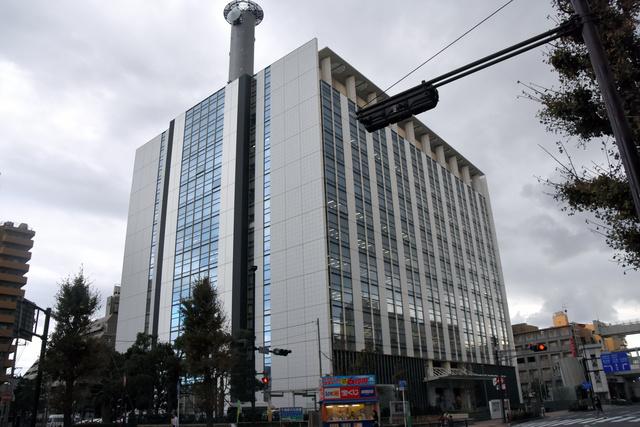Syria: From "normalized emergency"...
30
09
Syria: From "normalized emergency" to "indicated emergency" (2) Emergency in the normalization of the two -layer structure of power
Continuation of "(1) Relationship between a weak nation and society"
Authority in Syria
The Syrian Civil War was triggered by the opposition from the society side, that is, the movement to transform authoritarianism.Therefore, we first summarize the characteristics of authority in Syria.
Syria's authoritarianism starts from the Baas Revolution in March 1963, the Baas Party's government.In Syria, which achieved independence in April 1946 after the Delegation of France, the democracy was initially laid down.However, as the conservative forces, such as landowners, large merchants, and capitalists who have vested interests in politics and economy, and innovation forces such as workers and farmers, the national politics is confused and repeated coups (March 1949, 8, 1949, 8.Month, December 1951, in February 1954), military government (March 1949 -August 1951, November 1951 -February 1954), February 1958 (February 1958 -1961)September year, parliamentary democracy had to be interrupted.
The Baas Revolution settled the class conflict, which was the main cause of national confusion, in the form of innovation. However, at the same time, it began the history of parliamentary democracy in Syria. The Baas Party, who has self -acknowledged the Arab ethnic party, which is the leading Arab ethnic group, mainly workers and farmers, realizes social and fair based on class peace, giving priority to the establishment of the union nation by the Arab ethnic group. I was aiming for. However, before and after the Baas Revolution, it has become a strong influence of Marx Leninism, emphasizes the construction of national socialism by Syria, and promotes one -party dictatorial authority under the name of proletarian dictatorship. rice field. As a result, one of the power of power has progressed within the administration, and power struggles have intensified in the party. This power struggle is not only a conflict over ideology and policies, but also the elimination of political enemies based on "old cracks" (Old CleavageS, Barakat [1993: 48]), such as terrain and blood, and is a national social economic policy. Combined with a deadlock and the defeat of the Third Middle East War in June 1967 (AL-NAKSA), he unstable politics.
Two -layer structure of power
Former President Hafiz Assad (1971-2000) ended the national confusion.He seized all rights in a coup in November 1970, named the orthodontic exercise, and as the last winner of the power struggle since independence, "the personalization of the system" (Shakhsana Al-NIZAM, AL-TURK [2001])Created a strong political system of personal personality (SEALE [1988: 494]) that would be ridiculed.This is "new family-producing authority" (Neo-PATRIMONIAL AUTHORITARIANISM, Aoyama / Suei [2009: 10]), or "Popularist Authoritarianism, Hinnebusch [2001: 1], HeyDemann [199: 1]Refer to 4], etc. (4], but the liver was the "two-layer structure of power" (Two-Tier Power Structure, Aoyama [2001], Aoyama [2001]).
The two-layer structure of power is the "Nominal" power device such as the Cabinet and the People's Council (the Diet) that exercises "visible power" (al-Sulta al-zahira), and "hidden power".It is a political structure consisting of a "true" power device such as Mukhabarat (Note 1), an army that exercises (Al-Sulta Al-Khafiya).Of these, the nominal power device was responsible for the public power that was legally exercised under the political system in which three rights was divided.However, substantial rule is performed by true power that is not originally involved in politics, and the executives are more fearful to the president than the system and law (fear and awe.In the midst of a half -minded feeling, he exercised the unpowered power.
With the establishment of these political structures, Syria, a weak nation that was tossed by the power struggle in Japan and the Middle East and international situation, has been transformed into a stable and strongest state in the Middle East.H. Asado's governance is the opposition movement led by the Syrian Muslim Brotherhood from the late 1970s to the early 1980s, attempted coups by Lefuat Assad in the 1980s, and the Lebann Country in 1975-1990 Lebann Civil War.In the process of overcoming the conflict with Western countries, it became unwavering.
With the death of H. Asado in 2000, the second son, Bushal Assad, inherited the president's status, Syria's authoritarianism entered the stage called "Jumlukiya".Jum Rookie is a coined word made from "Jumhuriya", which means republic, and "Malakiya", which means the royal system.The political system inherited from father to child was called "Damascus Spring" (2000-2001), "Spring of Carmishuli" (2004), and "2nd Damascus Spring" (2005).Despite the crisis of Bashing in European and American countries over the opposition, Lebanon's former Prime Minister Lafk Harry (2005), stable until March 2011, when "Arab Spring" spreads to Syria.I enjoyed.
State dominance of society
State and society in Syria won the relationship through two power devices in the two -layer structure of power.
The national social relationship through the true power device was based on the latter monitoring.By exercising the violence of centrally managed through true power devices, the nation spread the "culture of fear" (Thaqafa Al-Khawf, 'ID [2001]) in society, withered the members, and forced them to submit.In addition, it has been relentlessly suppressing political opponents inside and outside the system that tries to resist such strong power.
The Baas Party was the nodine of the nation and society.By controlling mobilization channels such as the people's organizations (Note 2) and the Occupational Union (Note 3), the Baas Party creates a national corporate -like national social relationship, and incorporates members of society in a vitality.(Hinnebusch [2001: 83-84], Perthes [1995: 170-180], Shaaban [1991: 28-29]) (Note 4).

However, in the two -layer structure of power, the nation did not dominate society by violence alone.This is because the normary power device was held (cooptation), and society (part of the members) participated in the state management.
The best way to join the Baas Party, or the people's organizations and the professional union for society to participate in national management.In fact, many social members have tried to get political, economic and social opportunities through this route.Therefore, there was a fierce competition when the party and union executive departments and the election of the People's Assembly elections were selected (Note 5).
A limited number of opportunities were prepared for the loser of competition, and the members who abandoned and refused to give the Baas party for political and ideological reasons in the first place.Innovative forces, which are different from the Baas Party, were able to configure a member organization of the Advanced National Front, the coalition ruling party.In addition, conservatives, such as great merchants and large -scale owners, have maintained good relationships with the nations through the commercial and industries such as Damascus Prefecture and Aleppo City, and have been engaged in economic activities.
Nevertheless, this did not mean that H. Asado -dominated nations had a comprehensive representative of all social members.Its governance was often strong, and was not necessarily based on the spontaneousness and ingenuity of social members.No matter what political, economic and social attributes, social members are afraid of national violence, and on the other hand, "pretend to be loyalty to the administration, and then loyal to the administration.(Acting as if, Wednewen [1999: 67-86]) was forced.According to Wedneen [1999], in the 1970s, the praise of the Baas party was emphasized, and since the 1980s, the trend of worshiping the President has increased, and the deity using Islamic rhetoric has been used.。
In other words, the state has denied society's independence, dignity, and conscience by symbolizing ruling political parties and leaders, and by "pretending" by society.In addition, by enhancing a society in the participation of a society to the nation, it was designed to be an accomplice that maintains control.
emergency
Is the authoritarian established under H. Assad has been maintained for 41 years in the 65 -year -old Syrian political history, from independence to the "Arab Spring" spread for 41 years.The opinions may be divided by the differences in political positions and values.However, it should be noted that this situation has been treated as an "emergency" by the state.
H. Asado's governance was given the same "correction movement" as the coup he had been masterpiece in November 1970. The "correction" mentioned here means that the Baas Party administration has been revised before that, leading to the revolution in the direction of the revolution. H. Asado overcomes the totalitarian trends caused by a single party dictatorship adopted by the Baas Party administration in the 1960s, the negative effects on the economy due to the national socialist policy, and the decline in the third Middle East War. A series of domestic reforms have been started. He criticized the previous regime as "non -democratic" and "compressive", expressed the abolition of one party dictatorship by the Baas Party and the resurrection of parliamentary democracy (February 1971), President. The election (March 1971), the constitution was enacted (March 1973), and the People's Assembly election (May 1973). While promoting the deregulation policy called "Infitah" (INFITAH, open door), he has been working on economic rebuilding, especially a large merchant and celebrity in the capital city of Damascus, and lost the power struggle with the Baas Party. Founded with the innovation forces that had been driven by the innovation forces (March 1972) showed off political and economic multiphetitism (Aoyama [2001], Hizb AL-Ba'TH AL -'ARABI AL-ISHTIRAKI, Al-Qiyada Al-QAWMIYA [1978]).
As a result, the transition period after the Baas Revolution was over, and the "emergency" should have ended.However, in fact, H. Assad tried to ensure the legitimacy of rule by making the "emergency" "normal".This "normalized emergency" was based on two principles or policies.
The first principle is an emergency.The emergency was based on the war in the war with Israel and the administration (or system) at that time.It was first activated on May 15, 1948, when Israel declared its founding (Note 6), and has been activated and released in repeated coups and Israel.On December 22, 1962, the current emergency was ended, with the enforcement of the current emergency law, No. 51 (Note 7) in 1962 and the cancellation of the emergency of the legislative Ordinance No. 3276.However, the Baas Party (more strictly, the Revolutionary National Council) issued a military order No. 2 (Note 8) on that day (March 8, 1963), which was in control of the government by the Baas Revolution.It was reconnected.The emergency was maintained over half a century, based on the protection of the Baas Revolution.
In the emergency of the military Ordinance No. 2, the "normalized emergency" legalized for the true power device to be security and order, and society was exposed to monitoring. 1962 Administration No. 51 is "a state where war condition, state of fear of war, the security and public order in the Republican territory, or a part of the territory is exposed to the danger" (1st) (1st. " Regarding the emergency situation in Article a), the restrictions on rally, residence, movement, and traffic freedom (Article 4 A), temporary arrest of those who may harm security and public order (4th) Article a), an interrogation of individuals (Article 4 A), letters, communications, newspapers, publications, documents, prints, broadcasting, all expressions, advertising, censorship before the release of advertisements (Article 4 B) , Real estate quizzes (Article 4 F), corporate and organizational surveillance (Article 4 F), etc. The offenders have stipulated that they will impose a punishment for the military court (Article 6 A) and the forbidden penalties within three years (Article 4).
It was the national highest security court to judge crimes caught by true power devices.The court was in the 1968 Advancement Ordinance No. 47 (the National Supreme Court Law, which was enforced on March 28, 1968 based on the 1965 Advancement Ordinance No. 6 (Revolutionary Protection Law) enacted on January 7, 1965.(Note 9).
The National Supreme Court, which is stipulated by the "Request for Security" (Article 1 A), is a criminal law (Note 10), a crime that violates domestic security, for example,,,,,,,,,,,,,,,, illegal.Constitutional reorganization, civil war, ethnic sentiment, infringement of ethnic emotions, civil wars, crimes related to sect conflicts, crimes that violate foreign security stipulated by Article 263 to Article 274 of the Criminal Code, military services in Syria.It was a special court to hear spy activities for foreign countries and violations of the emergency law.In addition, "no legal measures are restricted by civil law" (Article 7 A), and "no appeal for the ruling" (Article 8) is said to be the activities of military and Muhabarato.Absolute authority has been given to society a blockage situation called "the culture of fear."
Permanence of the revolution
The second principle that supports the "normalized emergency" along with the emergency is the permanent of the revolution.This was clearly cultivated in the Constitution, which is the basic law.The Baas Party's authority relied on many exceptions, such as the Emergency Law and the National Security Court Act.In order to guarantee this under the framework of the normal law, Article 8 of the Constitution, which was enforced in March 1973, imitated the leading role of the Communist Party in the Soviet Union's 1936 constitution.The words of society and the national leadership, integrating the power of the People's people and teaching a patriotic and advanced front that works to serve the purpose of the Arabs, "was included.
Needless to say, the constitutional revolution, of course, is the youngest youth officer called the Military Commission, which was a mastermind of the Baas Revolution, and H. Asado, who was the final victory in the afterbound power struggle.There was an aim to position it as a legitimate contractor.However, not only that, the involvement of true power devices in politics and the use of violence against society will be the "avant -garde that teaches the nation and society" by the members of the Baas party, and the framework of the normal method.It was legally legalized.
The characteristics of Syria's authoritarianism have been clarified, but the contents are summarized as follows.Syria's authoritarianism, which was completed under H. Assad, featured the "two -layer structure of power".The national social relationship there was the appearance of a national corporateism with the Baas Party as a nodine, and the national rule of society was based on the use of violence and relief.This situation was maintained in an "emergency" and was "normalized" by the two principles of emergency and the permanent of the revolution.
note
- アラビア語で「諜報」を意味し、軍、内務省、バアス党が所轄する諜報機関、治安維持警察、武装治安組織を指す。軍事情報局、総合情報部、空軍情報部、政治治安部、国民安全保障会議、共和国護衛隊がこれに含まれる。詳しくは、青山・末近[2009:11-12]を参照。
- 人民諸組織とは、同業組合の連合組織で、労働総連合、農民総連合、バアス前衛機構、革命青年連合、スポーツ総連合、シリア学生国民連合、女性連合、専門職業協会総連合、生活共同連合、アラブ作家連合、ジャーナリスト連合からなる。
- 職能組合には、教員組合、工学者組合、医師組合、農学者組合、歯科医師組合、薬学士組合、弁護士組合、芸術組合、技術者組合、請負士組合がある。
- なおHinnebusch[2001: 83]は「国家コーポラティズム」ではなく、「人民主義的コーポラティズム」という言葉を用いている。
- このことは、例えば人民議会選挙に際して、バアス党の決定に先んじて立候補届けを出す党員の数が定数の10倍以上、場合によっては20倍以上に及んできた事実を見れば明らかである。
- より厳密に言うと、1948年5月15日に発動されたのは戒厳令で、それは、1948年5月15日の法律第400号によって施行されたemergency法に従い、同日の法律第401号により、6ヶ月の発動が定められた(シリア・アラブ共和国防衛省ホームページを参照)。
- 1962年政令第51号の全文はAl Jazeera Encyclopediaを参照。
- 軍事令第2号の内容は以下の通り――「革命指導国民評議会は、1963年3月8日より別途通知を行うまで、シリア・アラブ共和国全土においてemergencyを発令する」(Mumtaz[2006]を参照)。
- 1968年政令第47号の全文は、シリア人権委員会ホームページを参照。なお、1968年政令第47号はその後、1972年10月2日政令第76号、1979年1月10日政令第57号、1980年4月20日政令第19号によって修正された。
- 刑事法の全文はシリア・アラブ共和国法務省ホームページを参照。
- 1973年の憲法の全文は、研究世論調査国民センターのホームページを参照。なお恒久憲法第8条の文言は、H・アサドが全権を掌握した3ヶ月後の1971年2月19日の1971年政令第141号によって施行された暫定修正憲法において初めて登場していた(Kaywan[2011])。
References
Following "(3) Changes in the national social relations brought by the civil war"


![[Kill personally developed games] Top class in app history! Too beautiful water puzzle "a [Q] ua" | Famitsu App for smartphone game information [Kill personally developed games] Top class in app history! Too beautiful water puzzle "a [Q] ua" | Famitsu App for smartphone game information](https://website-google-hk.oss-cn-hongkong.aliyuncs.com/drawing/article_results_7/2022/3/3/66755df992ff2d2b1e1ab43844ef9f88_0.jpeg)





![[Latest in 2021] 10 recommended seat covers for cars!If you want to improve the texture and functionality of the car, choose the mounting type and material. [Latest in 2021] 10 recommended seat covers for cars!If you want to improve the texture and functionality of the car, choose the mounting type and material.](https://website-google-hk.oss-cn-hongkong.aliyuncs.com/drawing/article_results_7/2022/3/3/e5b44589e77141f3a633189165fb6f60_0.jpeg)